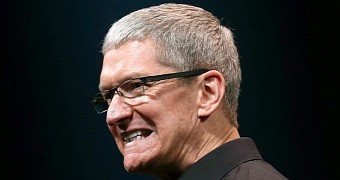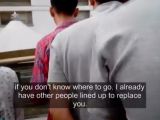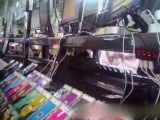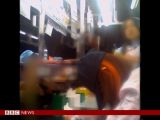After releasing shocking coverage of the practices undertaken by Apple suppliers to increase productivity, the BBC has retracted its documentary from YouTube, likely after discussions with the Cupertino giant’s legal department.
The documentary in question, while not entirely inaccurate, made it seem as if Apple was solely responsible for the harsh conditions imposed by Pegatron at its iPhone assembly plants.
While the California tech mammoth indeed has a responsibility to work with suppliers and ensure fair and humane treatment of all workers, it also has to trust that these suppliers are doing the right thing even when its inspectors aren’t looking.
Apple’s CEO Tim Cook said he was “deeply offended” by the BBC’s allegations. On the same day, the company issued a lengthy letter to 5,000 staffers in the U.K. that basically instructed them to take the documentary with a boulder-sized grain of salt.
The Pegatron factories
Apparently, that’s not the case at Pegatron, where even under Apple’s constant supervision rules continue to be broken, resulting in severe violations towards employees, new and old. The company has admitted in a statement that its mission on this front is never over, but the BBC pinned most of the violations on Apple.
Pegatron itself responded to the accusations, saying something along those same lines, but with far less convincing arguments. The electronics maker told the Taiwan Stock Exchange that “employee safety is its top priority and it has been working to ensure all of its working places are safe.” It added that will “start implementing improvements to ensure the problems are solved,” according to DigiTimes.
Who are the miners in Indonesia?
The documentary further delved into the sensitive matter involving conflict-minerals and how Apple allegedly turned a blind eye to the illegal extraction of tin in Indonesian mines. In reality, Apple has no way of determining if all the tin it buys from Indonesia’s government comes from legal mining or not.
For example, the child & father interview made by the BBC likely shows two locals working without papers to supply the precious tin ore to smelters in return for a fee – a common occurrence around those parts, we hear.
The smelters may or may not ask where the tin came from when they pay the duo. This, and many other questions, remained unanswered by the BBC documentary, which is probably why Apple took steps to remedy the situation.
Readers should note that Softpedia has not received any direct confirmation that it was Apple that acted to have the footage removed, but it would appear that the BBC has been told to retract the material at least from its YouTube channel. Word has it that the Panorama report is still available on the U.K.’s iPlayer platform.

 14 DAY TRIAL //
14 DAY TRIAL // 



